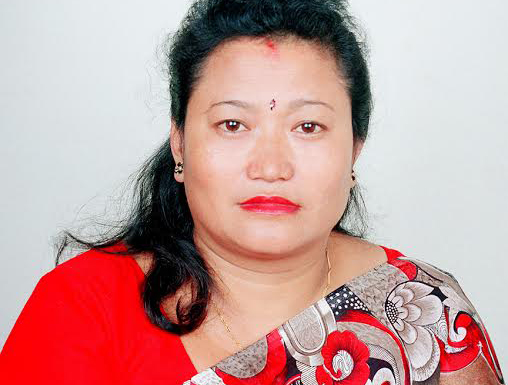
The Kathmandu District Court has given a clean chit to Mrs. Surakshya Singh, a.k.a Nikki, on 2 June 2014. Nikki has been the principle suspect in the case of disappearance of Mrs. Chhori Maiya Maharjan, missing for the past two years. In following this case, and the functioning of the criminal justice mechanisms, right up to this week’s judgment, the AHRC has reason to believe that it presents yet another example of a flawed justice system in Nepal.
The background to the case is as follows. Chhori Maiya went to meet Nikki in Baneshwor on 28 February 2012 and never returned. Police investigations revealed that Nikki had borrowed 5 million Nepali rupees from Chhori Maiya. An investigation report, prepared by the Ministry of Home Affairs mentions that Chhori Maiya was forcefully disappeared, and that there is strong evidence against Nikki for her involvement in the disappearance.
Yet, the judge, in his wisdom, has found otherwise. And, it is not just the judgment that is suspicious. It is the manner in which the court has conducted itself that has raised suspicions regarding the fairness in trial.
The court arrived at its decision late in the evening – at 9:50 p.m. to be precise. Judge Mr. Rajesh Kumar Kafle took 4 hours 50 minutes (5 p.m. to 9:50 p.m.) to write the verdict. Courts close at 5 p.m. in Nepal. The judge therefore did not deliver his judgment in open court.
The judge took extra time on the same day to deliver the judgment, outside normal working hours of the court, without any permission from the higher court, and without any recorded reason to do so. This suggests that the judge was personally interested in the case, and sought to acquit the suspect on the same day.
What is more, in his judgment, which was but a single sentence long, the judge merely said the accused is acquitted. No evaluation of evidence or reasoning has been provided; the judgment is therefore not a ‘Speaking Order’.
There are several irregularities evident. Any proceedings in a civilian court should be open to the public. The court has to function at officially approved times, unless it seeks permission to run its proceedings after office hours. Did the court seek permission and did relevant authorities approve this request? This question deserves an answer. An open court functioning at 9:50 pm, without any apparent reason, is suspicious behavior in itself.
A one-line judgment, which fails to show ground for lack of evidence, puts the judge’s actions in question. A judgment one line long can indicate the lack of fair trial. In a fair trial, accusation, investigation, court proceedings, and prosecution, must all be free and fair, and open to public, and the final verdict must reason out how the judge has drawn upon evidence to draw his or her conclusion. The judge must use his or her judicial mind to consider the evidence placed. When there is a judgment in a criminal case, whether there is a person guilty or not guilty, it should be a ‘Speaking Order’. Whether the accused has been found guilty or acquitted, the judge should restate the evidence provided and arrive at a conclusion based on how this evidence establishes or fails to substantiate the charge.
What has taken place in Judge Kafle’s courtroom is simply bad judicial practice. Unfortunately, ordinary people in Nepal cannot criticise such irregularities fearing contempt actions from the court.
In other acts of impropriety, Chhori Maiya’s family was not provided a copy of the investigation report prepared by the Ministry of Home Affairs. They were permitted to have a look at the report for only 15 minutes before the proceeding.
Apart from delivering his judgment at 9:50 p.m., Judge Kafle also deferred hearing dates on several occasions, using petty excuses. These delays did not help allay suspicions regarding the impartiality of the court; it is widely understood in Nepal that the law does not favour victims and that justice is subject to money, power, and position.
At the end, one question still remains unanswered.
Where is Chhori Maiya Maharjan?
The Nepal state has the responsibility to locate and answer for Chhori Maiya. It is state responsibility to look after the safety and security of victims and their families. If justice is not done and not seen to be done, citizens will only suspect the state and the social contract will spin out of control.